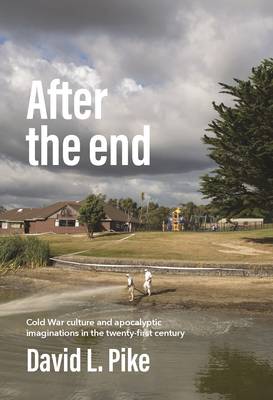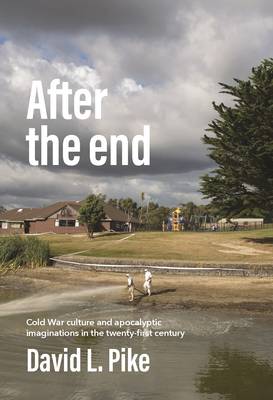
Bedankt voor het vertrouwen het afgelopen jaar! Om jou te bedanken bieden we GRATIS verzending (in België) aan op alles gedurende de hele maand januari.
- Afhalen na 1 uur in een winkel met voorraad
- In januari gratis thuislevering in België
- Ruim aanbod met 7 miljoen producten
Bedankt voor het vertrouwen het afgelopen jaar! Om jou te bedanken bieden we GRATIS verzending (in België) aan op alles gedurende de hele maand januari.
- Afhalen na 1 uur in een winkel met voorraad
- In januari gratis thuislevering in België
- Ruim aanbod met 7 miljoen producten
Zoeken
After the End
Cold War Culture and Apocalyptic Imaginations in the Twenty-First Century
David L Pike
Hardcover | Engels
€ 225,95
+ 451 punten
Uitvoering
Omschrijving
After the End argues that the cultural imaginaries and practices of the Cold War continue to deeply shape the present in profound but largely unnoticed ways across the global North and in the global South. The argument draws examples from literature and literary criticism, film, music, the historical and social scientific record and past and present physical sites to consider the bunker as a material form, an image and as a fantasy that took shape in the global North in the 1960s and that spread globally into the twenty-first century. After the End reminds us not only that most of the world's peoples have lived with or died from apocalyptic conditions for centuries, but that the Cold War imaginaries that grew from and fed those conditions, continue to survive as well.
Specificaties
Betrokkenen
- Auteur(s):
- Uitgeverij:
Inhoud
- Aantal bladzijden:
- 360
- Taal:
- Engels
Eigenschappen
- Productcode (EAN):
- 9781526174048
- Verschijningsdatum:
- 9/04/2024
- Uitvoering:
- Hardcover
- Formaat:
- Genaaid
- Afmetingen:
- 156 mm x 234 mm
- Gewicht:
- 857 g

Alleen bij Standaard Boekhandel
+ 451 punten op je klantenkaart van Standaard Boekhandel
Beoordelingen
We publiceren alleen reviews die voldoen aan de voorwaarden voor reviews. Bekijk onze voorwaarden voor reviews.









